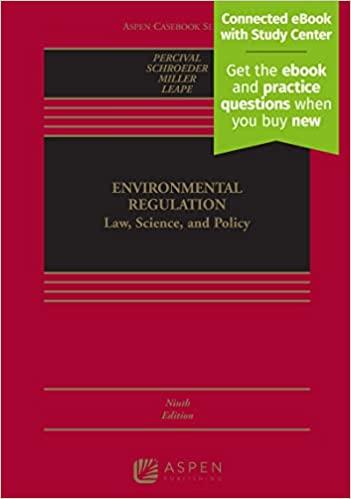Question
Which of the following is not an exception to the need for consent 1. in compliance with a legal obligation to disclose 2. for the
Which of the following is not an exception to the need for consent
| 1. | in compliance with a legal obligation to disclose | |
| 2. | for the purpose of investigating a breach of law where consent would likely compromise accuracy or availability | |
| 3. | in the interests of the owner and in a circumstance when consent could easily be obtained in a timely manner | |
| 4. | for artistic, literary, or journalistic purposes | |
| 5. | of publicly available information and specified in regulation |
2.
Caveat emptormeans
| 1. | risk is with the seller | |
| 2. | let the buyer beware | |
| 3. | principle of empty promises | |
| 4. | unfulfilled - or empty - promise | |
| 5. | it is not my doing |
3.
The law of privacy balances
| 1. | the needs of society and an individual's right to privacy. | |
| 2. | the requirements of territorial privacy against those of personal privacy. | |
| 3. | the needs of society in a democratic state. | |
| 4. | the needs of society and court decisions relating to privacy. | |
| 5. | an individual's right to privacy against the individual's right to security. |
4.
Business negotiations usually involve the exchange of offers and counter offers. A contract is only formed when:
| 1. | when both sides exchange offers and/or counter offers. The act of this exchange creates the contract between - the contract to continue negotiating. | |
| 2. | an offer by one side was accepted without alteration, modification or condition by the other side, after the side making the offer sent a revocation | |
| 3. | an offer by one side is accepted with a counter offer by the other side | |
| 4. | an offer by one side is accepted without alteration, modification or condition by the other side | |
| 5. | an offer by one side is accepted without alteration, modification or condition by the other side, except with a minor change to one term that is of very little consequence to the whole agreement in the opinion of the side accepting |
5.
Which of the following statements about the nature of consideration istrue?
| 1. | All of the above. | |
| 2. | Consideration must involve a benefit; giving up something is not valid consideration. | |
| 3. | Adequate consideration is always a requirement. | |
| 4. | Sufficient consideration could be almost anything of value. | |
| 5. | Judges try to ensure that consideration from each party is of equal value. |
Step by Step Solution
There are 3 Steps involved in it
Step: 1

Get Instant Access to Expert-Tailored Solutions
See step-by-step solutions with expert insights and AI powered tools for academic success
Step: 2

Step: 3

Ace Your Homework with AI
Get the answers you need in no time with our AI-driven, step-by-step assistance
Get Started


